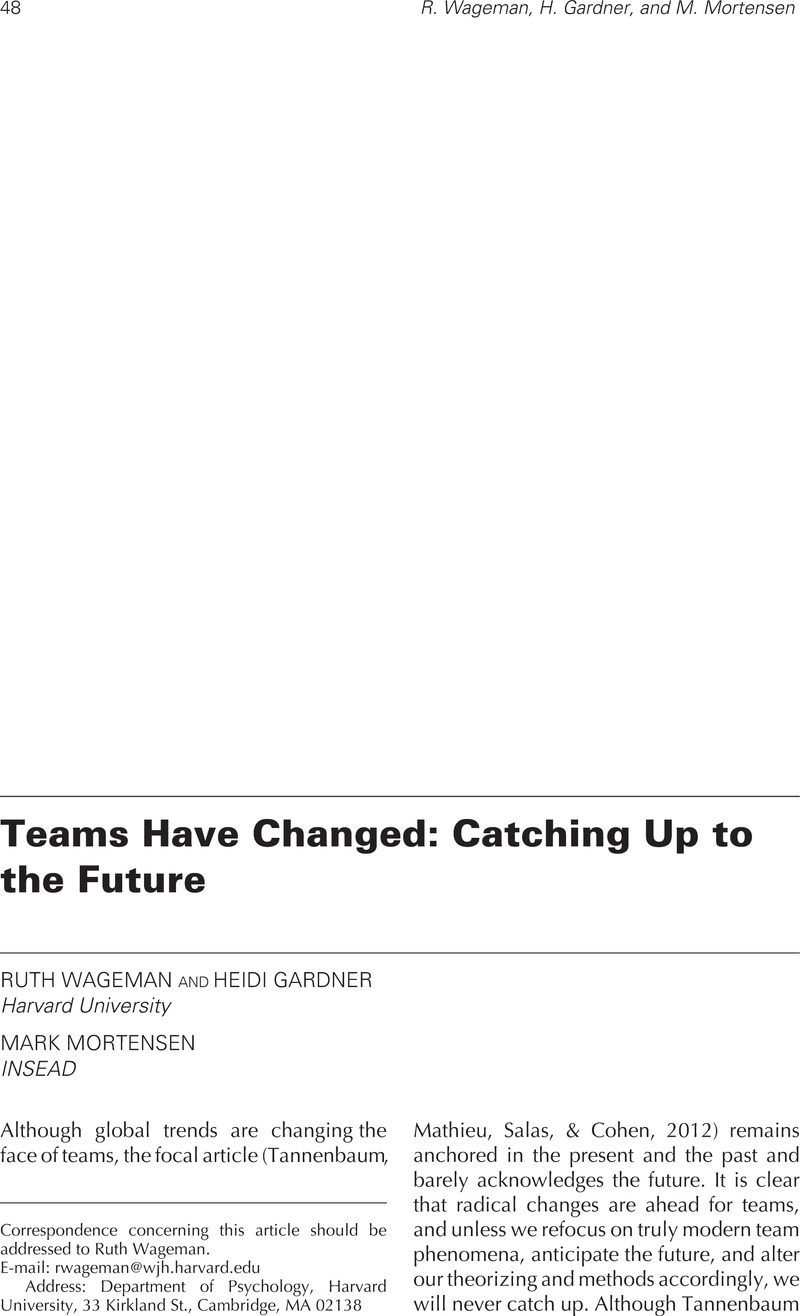Crossref Citations
This article has been cited by the following publications. This list is generated based on data provided by Crossref.
Tannenbaum, Scott I.
Mathieu, John E.
Salas, Eduardo
and
Cohen, Debra
2012.
On Teams: Unifying Themes and the Way Ahead.
Industrial and Organizational Psychology,
Vol. 5,
Issue. 1,
p.
56.
Maynard, M. Travis
Gilson, Lucy L.
and
Mathieu, John E.
2012.
Empowerment—Fad or Fab? A Multilevel Review of the Past Two Decades of Research.
Journal of Management,
Vol. 38,
Issue. 4,
p.
1231.
Artis, Laura
and
Smith, Joanne R.
2013.
Emergency Department Staff Attitudes Toward People Who Self-Harm.
Advanced Emergency Nursing Journal,
Vol. 35,
Issue. 3,
p.
259.
Bertolotti, Fabiola
Mattarelli, Elisa
Vignoli, Matteo
and
Macrì, Diego Maria
2015.
Exploring the relationship between multiple team membership and team performance: The role of social networks and collaborative technology.
Research Policy,
Vol. 44,
Issue. 4,
p.
911.
Cordery, John L.
and
Tian, Amy W.
2017.
The Wiley Blackwell Handbook of the Psychology of Team Working and Collaborative Processes.
p.
103.
Afflerbach, Thomas
2020.
Hybrid Virtual Teams in Shared Services Organizations.
p.
9.
Burke, C. Shawn
Wiese, Christopher W.
and
Campbell, Lauren N. P.
2021.
Leveraging historiometry to better understand teams in context.
Organizational Psychology Review,
Vol. 11,
Issue. 3,
p.
319.
Satterstrom, Patricia
Kerrissey, Michaela
and
DiBenigno, Julia
2021.
The Voice Cultivation Process: How Team Members Can Help Upward Voice Live on to Implementation.
Administrative Science Quarterly,
Vol. 66,
Issue. 2,
p.
380.
Neumer, Judith
and
Nicklich, Manuel
2021.
Projekt- und Teamarbeit in der digitalisierten Arbeitswelt.
p.
31.
Sackett, Esther
and
Fitzsimons, Gráinne M.
2021.
The Effects of Extra-Team Goal Disclosure on Team Performance, Viability, and Satisfaction.
Frontiers in Psychology,
Vol. 11,
Issue. ,





